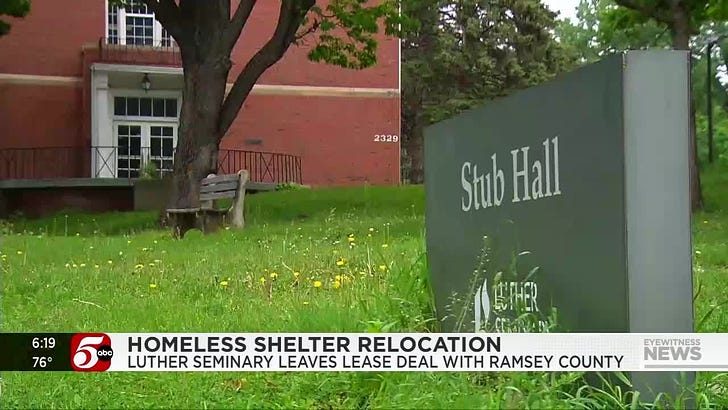
Discover more from Lutheran Confessions
If you know me very well, this post may come as a surprise. You might think, He’s started multiple nonprofits, partners with many others, and is right now opening a conversation for yet another one. What the what?
So I won’t bury the lead. I have a specific reason I wish churches didn’t have to start so many nonprofits. It’s because I think most things addressed by such nonprofits would be better addressed by federal and state social services.
In other words, give me a New New Deal rather than a proliferation of non-profits.
We shouldn’t have to form nonprofits to provide housing for the homeless: the state should do that. Same for ensuring everyone has food, has access to quality health care, receives all the support and resources they need if they arrive here as an immigrant or refugee; and so on.
I know, sometimes there is a lot of negative chatter about government bureaucracy, but I consider most of that chatter libertarian and capitalist propaganda. Libertarians falsely assume everyone is best off fending for themselves, and capitalists resist any structures that would place proper regulations and counterpoint to the so-called “free” market.
But really, every org has a structure. The point isn’t the size of an org but how well it is run. And orgs at the appropriate scale can do what small orgs in aggregate simply cannot, and do more efficiently.
Sociologist Robert Wuthnow once calculated that each church in the US, even the tiny ones, would have to add $700,000 to their budget to cover the services currently provided by the government: this food stamps, Medicaid, etc. And I highly doubt most of these churches would be ready to perform professionally the kinds of services necessary.
Federal funding for social support works. Food stamps work. Single payer health coverage works. Public housing works.
So my first issue with nonprofits: they are a stop-gap measure we keep implementing because we haven’t as-of-yet gathered the political will as a nation to vote in leaders who will establish an actual social safety nets that guarantees access to the basics of human life.
And don’t even get me stated on a Universal Basic Income, which would change everything.
So those of us who start or donate to or support or run nonprofits do so only out of a problematic necessity: there are no better options and we need to get people into shelter because it’s freezing out and the kids are hungry.
Once we’ve created these, we rightly celebrate them. Nonprofits do amazing things. But then we turn that itself into a cultural churn, what some have labeled the “nonprofit industrial complex.”
The nonprofit industrial complex (NPIC) refers to the eclectic collection of privatized nonprofits that provide social service, usually with financial aid from corporations and the government. This complex has become one of the largest economies in the world, and because it is haphazardly organized yet large, it doesn’t alway serve real justice and equality in our communities (see, for example, The Revolution Will Not Be Funded).
Why? Well, if you have an entire network of nonprofits all trying to survive and pay their staff and executives, guess what: they all get busy trying to find money. And guess who has ALL the money?
Foundations and rich people and mega corporations.
So now instead of care in community and creativity and so much more designed and led by a kind of democratic or social system, it’s all shaped (at least in part) to meet the current ideological whims of foundations and people with money. Sometimes this is good. Other times it’s awful. For example when whole nonprofit systems are developed that help provide shelter in communities, and then the big grant giving agencies decide they aren’t interested in housing anymore, but instead are more interested in art.
This is how you end up with a situation like the one in Northwest Arkansas, where non-profits built a bike course on the top of a mountain that has a helicopter landing pad.
Guess what local billionaires like bicycles and flying.
In the end, I wish we didn’t need to create non-profits because there would be no need. Once we are creating non-profits, it means some of us, with the best of intentions, are having to insert ourselves as “patron” or helper into situations where those being helped on certain levels are not empowered to design the systems of support for themselves.
In the meantime, we can apply this critical insight about the problems of non-profits in order to run the non-profits we do have to start in ways that are as empowering and mutual as possible.
—
Some notes on how and why to start a nonprofit…
Don’t. Do a wide-ranging survey to see if anyone else is doing what it is you want yours to do. If they are, go support that.
If after long analysis you realize no one else is doing it, then maybe get a group together and discuss starting one.
Now ask yourself: would it be better if a government agency did this? If they aren’t, why not?
Vote. Advocate. Ask city council members and state legislatures and senators and congresspeople to make change.
Okay, you still think you need to start the non-profit. Find a good lawyer who is a friend and maybe will help you file all the paperwork. It’s not that hard.
Find big donors. You’re going to need them.
Keep meeting and meeting and persisting. Until you get some actual staff, starting a non-profit will be come a half to full time job for multiple people. This maybe why churches start so many. They have staff resources who can shift some of their time, and networks to recruit volunteers and form teams.
Learn how to research and write grants. You’ll be doing this a lot.
Go back to #1.
Go back to #3.
If you have funding and you have a board and are now a non-profit, access great resources for board function to learn how to run a non-profit board.
Commit to an excellent relationship between the executive director and the board. This is crucial.
Don’t drift from your mission.
Keep the non-profit about what it is about.
—
That’s enough of that. Just one last story. I had a leadership team that met for coffee once a week back around 2014. I made a list for one of our meetings of some things I wanted to do that year. One of them was to start a refugee resettlement agency. When the group looked at the list, they all agreed that was too big and to aim for one of the more realistic items on the list.
By the end of the year I’d started a refugee resettlement agency.
So maybe 15 is: Make some lists, talk with friends, then don’t listen to them… :)
—
Final note, this post was entirely non-religious, and yet somehow it’s central to how I think about church in relationship to the world.
Subscribe to Lutheran Confessions
Reflections from a progressive Lutheran pastor in the South.




